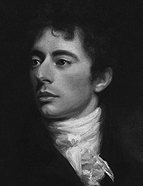

Robert Southey is undoubtedly an indispensable figure for understanding the complexities of the nation-formation processes that occurred in Brazil, Portugal, and Great Britain, as well as for appreciating the practices of modern historiography and literature. Evoking his name immediately entails engaging with concepts, languages, narratives, and sensibilities that infused his work as a historian, poet, biographer, and essayist. His intense production as a writer involved the development and articulation of disputed nation-building projects within the Portuguese-speaking and British worlds, which significantly influenced public opinion. Robert Southey was a complete and multifaceted man of letters, making his work and personality defy any simplistic schematisation or fixed categorisation, given that his sensibilities were formed amidst fluid spatial, historiographical, and literary boundaries. Robert Southey was born in Bristol, England, on 12 August 1774. He was the son of the modest merchant Robert Southey and Margaret Hill. His maternal uncles exerted a great influence on his life. During his childhood, Southey spent extended periods with Margaret’s half-sister, Elizabeth Tyler, living with her in Bath, Bedminster, and Bristol.
In 1788, he started his studies at Westminster. There, he met Grosvenor Bedford and Charles Wynn, who became his lifelong friends and correspondents. Wynn, who came from a noble family, supported Southey throughout his career, whether by providing financial assistance or exerting political influence. At Westminster, he was expelled for objecting to the corporal punishment to which the students were subjected.
In January 1793, he was admitted to Balliol College, Oxford. His father died bankrupt in December 1792, and his maternal uncle, Herbert Hill, financed his studies. Whilst Hill hoped his nephew would follow in his footsteps as an Anglican clergyman, Southey was instead fervently enthusiastic about the popular developments of the French Revolution.
This work is financed by national funds through FCT - Foundation for Science and Technology, I.P, in the scope of the projects UIDB/04311/2020 and UIDP/04311/2020.
